
The Heartbeat of Jerusalem: City Center
Welcome to the City Center of Jerusalem, a vibrant and historic district that serves as the beating heart of this ancient city. Here, the past and present blend seamlessly, offering tourists a unique experience that's rich in culture, history, and modernity. As you stroll through its bustling streets, you'll find a fascinating mix of historic landmarks, modern shops, and diverse eateries, all within walking distance of each other. Start your journey at the famous Jaffa Road, one of the oldest and busiest streets in Jerusalem. This thoroughfare is lined with shops, cafes, and cultural institutions, making it a perfect spot for both shopping and people-watching. Don't miss the Mahane Yehuda Market, a lively marketplace where you can sample local delicacies, purchase fresh produce, and soak in the vibrant atmosphere. For those interested in history and religion, the City Center offers easy access to some of Jerusalem's most significant sites. The Tower of David Museum, located near Jaffa Gate, provides a deep dive into the city's storied past, while the nearby Old City beckons with its ancient walls and sacred sites. As night falls, the City Center transforms into a lively nightlife hotspot. Ben Yehuda Street, in particular, comes alive with street performers, musicians, and a variety of bars and restaurants. Whether you're looking to enjoy a quiet evening with a glass of Israeli wine or dance the night away, the City Center has something for everyone.
Local tips in City Center
- Visit the Mahane Yehuda Market early in the day to avoid the crowds and get the freshest produce.
- Wear comfortable shoes as the streets are often cobbled and you'll be doing a lot of walking.
- Use the light rail for easy and efficient transport along Jaffa Road.
- Explore side streets and alleys for hidden gems like quaint cafes and boutique shops.
- Check local event listings for street performances and cultural festivals happening in the City Center.
The Heartbeat of Jerusalem: City Center
Welcome to the City Center of Jerusalem, a vibrant and historic district that serves as the beating heart of this ancient city. Here, the past and present blend seamlessly, offering tourists a unique experience that's rich in culture, history, and modernity. As you stroll through its bustling streets, you'll find a fascinating mix of historic landmarks, modern shops, and diverse eateries, all within walking distance of each other. Start your journey at the famous Jaffa Road, one of the oldest and busiest streets in Jerusalem. This thoroughfare is lined with shops, cafes, and cultural institutions, making it a perfect spot for both shopping and people-watching. Don't miss the Mahane Yehuda Market, a lively marketplace where you can sample local delicacies, purchase fresh produce, and soak in the vibrant atmosphere. For those interested in history and religion, the City Center offers easy access to some of Jerusalem's most significant sites. The Tower of David Museum, located near Jaffa Gate, provides a deep dive into the city's storied past, while the nearby Old City beckons with its ancient walls and sacred sites. As night falls, the City Center transforms into a lively nightlife hotspot. Ben Yehuda Street, in particular, comes alive with street performers, musicians, and a variety of bars and restaurants. Whether you're looking to enjoy a quiet evening with a glass of Israeli wine or dance the night away, the City Center has something for everyone.
Iconic landmarks you can’t miss
Church of the Holy Sepulchre
Discover the Church of the Holy Sepulchre, a historic and sacred site in Jerusalem that captures the essence of Christian heritage and spiritual pilgrimage.
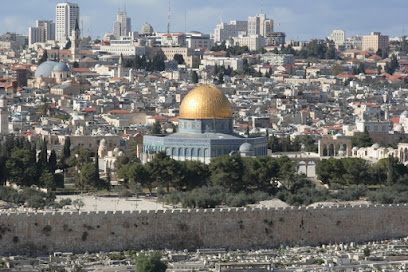
Western Wall
Experience the spiritual essence and historical significance of the Western Wall in Jerusalem, a global symbol of faith and connection.
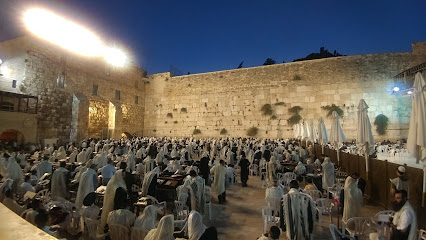
Zion Gate
Discover the historic Zion Gate, a majestic entrance to Jerusalem's Old City, rich in culture, history, and stunning architecture.
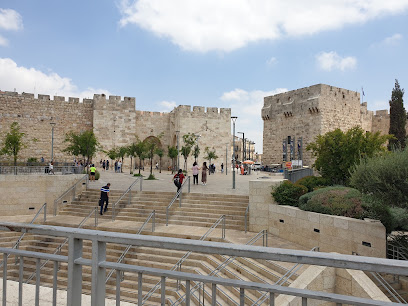
Tower of David
Discover the rich history and stunning architecture of the Tower of David, a must-visit landmark in the heart of Jerusalem, where past and present converge.
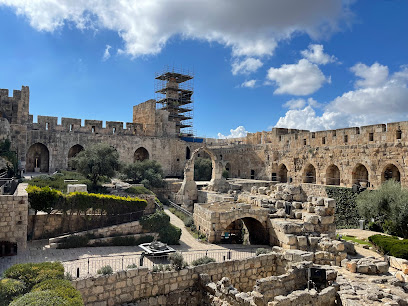
New Gate
Explore the New Gate in Jerusalem, a stunning historical landmark that connects the past with the vibrant present of this ancient city.
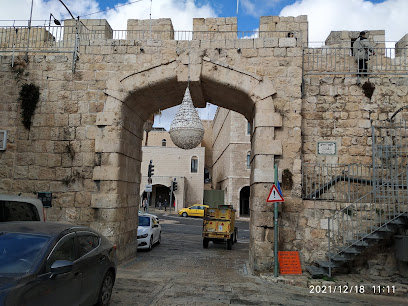
Herod's Gate
Explore the rich history and stunning architecture of Herod's Gate, a prominent landmark in Jerusalem's Old City, reflecting centuries of cultural significance.
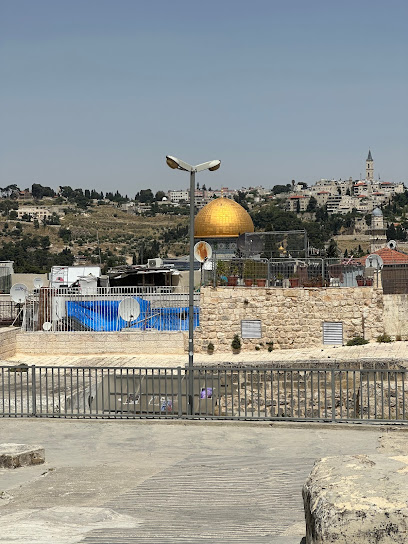
מנהרות הכותל
Explore the Western Wall in Jerusalem, a sacred site rich in history and spirituality, offering a profound experience for all visitors.
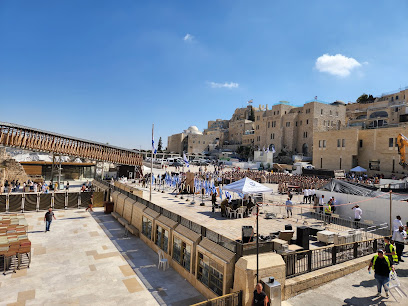
הקרן למורשת הכותל המערבי | סיורי סליחות | סיורים לקבוצות | טיולים בירושלים | סיורי חנוכיות | בר מצווה | בת מצווה | חלאקה
Explore the Kotel, a sacred site in Jerusalem, where history, spirituality, and cultural heritage converge for an unforgettable experience.
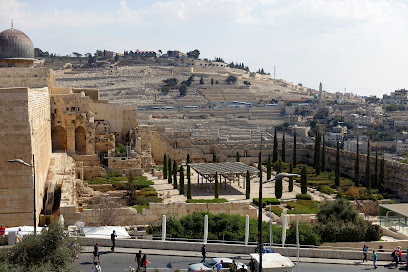
Broad Wall
Explore Broad Wall, an ancient 8th-century BCE fortification in Jerusalem, showcasing rich history and architectural marvels amidst modern vibrancy.
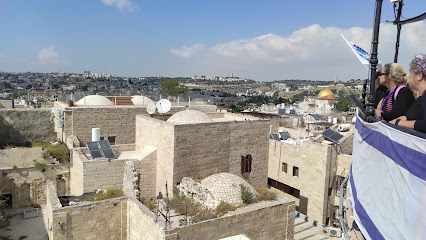
אתר מורשת - עיר דוד - ירושלים
Unearth the ancient history of Jerusalem at the City of David, where the past meets the present in a captivating archaeological adventure.
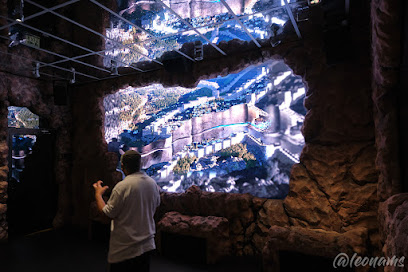
Unmissable attractions to see
Church of the Holy Sepulchre
Explore the Church of the Holy Sepulchre, a sacred site in Jerusalem that holds profound historical and spiritual significance for millions of Christians worldwide.
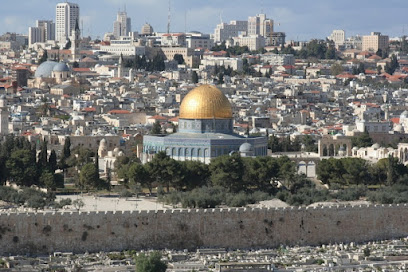
The First Station
Discover The First Station, a cultural gem in Jerusalem blending history, dining, and entertainment for an unforgettable visit.
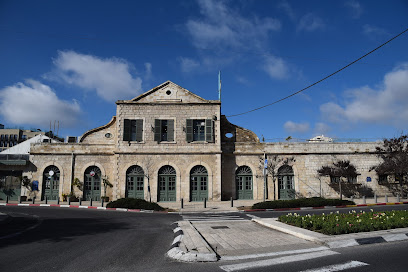
The Jerusalem Botanical Gardens
Explore the enchanting Jerusalem Botanical Gardens, a lush escape featuring diverse plant life and educational experiences in the heart of the city.
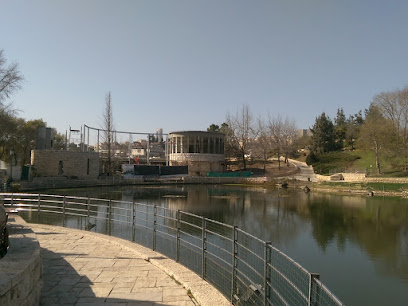
Archeological Park
Explore the Archeological Park in Jerusalem, a captivating blend of history and nature showcasing ancient ruins in one of the world's most significant cities.
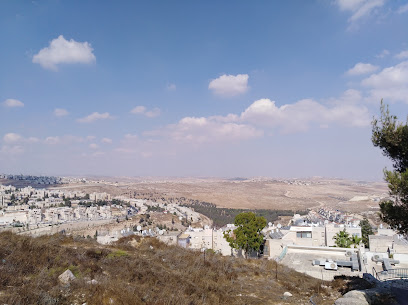
Essential places to dine
Machneyuda
Discover the vibrant flavors of modern Israeli cuisine at Machneyuda - where tradition meets innovation in Jerusalem's dining scene.
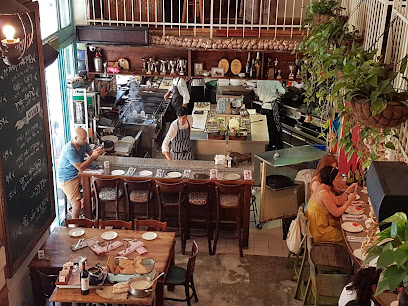
Piccolino
Experience authentic Italian cuisine at Piccolino in Jerusalem—where every dish tells a story and every meal is a celebration.
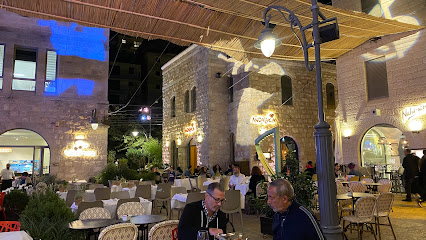
זוני ZUNI
Discover the rich flavors of Jerusalem at ZUNI, where modern cuisine meets traditional Israeli fare in a welcoming atmosphere.
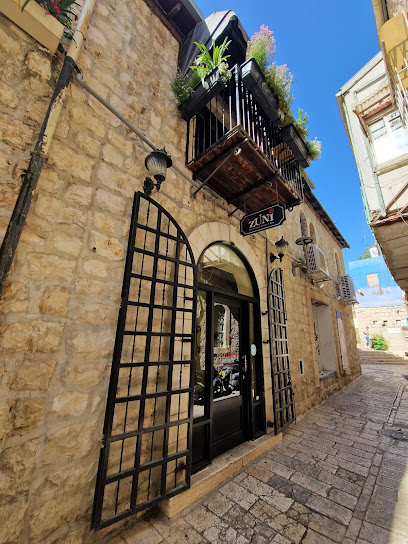
Deja Bu - דז'ה בו
Experience modern Israeli cuisine at Deja Bu – where vibrant flavors meet lively atmosphere in the heart of Jerusalem.
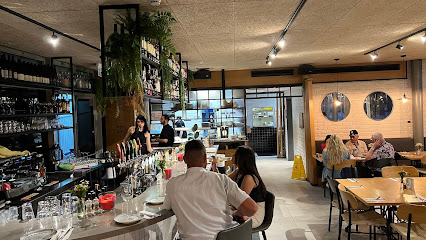
Chakra
Experience exquisite Mediterranean cuisine with French and Italian touches at Chakra in Jerusalem's vibrant dining scene.
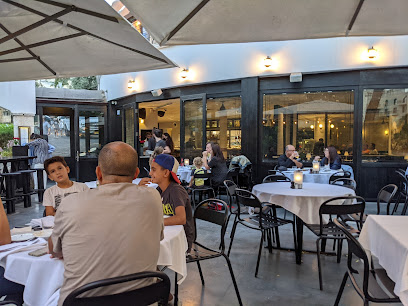
Pergamon restaurant - מסעדת פרגמון
Savor authentic Mediterranean flavors at Pergamon Restaurant in Jerusalem - where every dish tells a story.
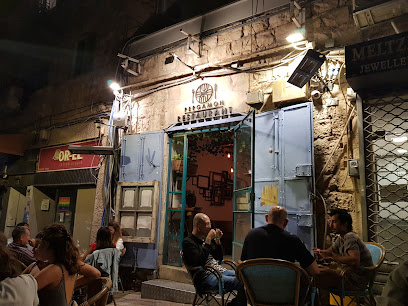
Versavee Restaurant Bar & Cafe
Discover Versavee Restaurant Bar & Cafe near Jaffa Gate – where local flavors meet modern dining in the heart of Jerusalem.
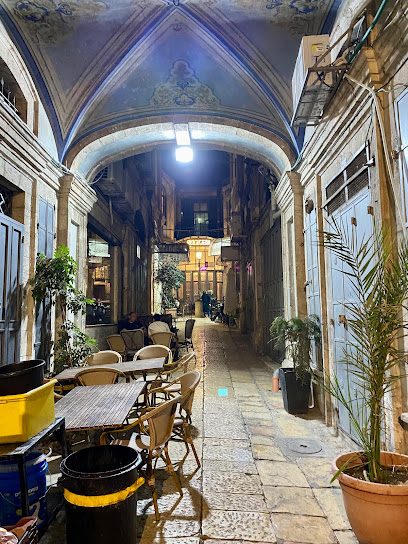
Family Restaurant
Experience authentic Arabic cuisine at Family Restaurant in Jerusalem - perfect for families seeking delicious flavors in a warm atmosphere.
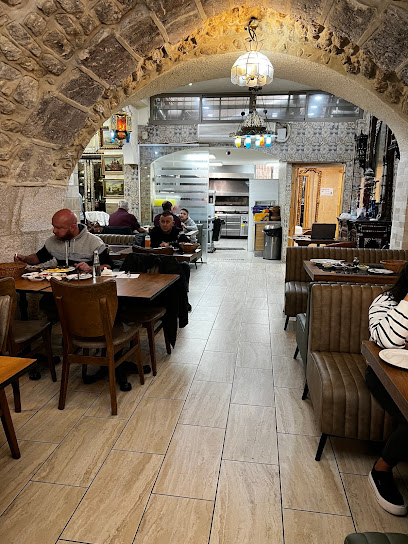
The Quarter Cafe
Experience authentic Israeli cuisine at The Quarter Cafe in Jerusalem - where tradition meets taste in every bite.
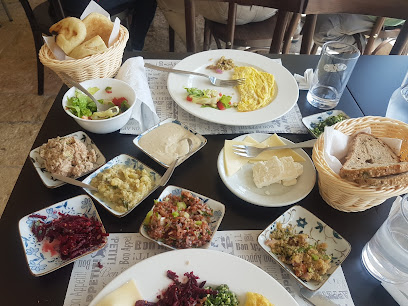
King David Restaurant
Discover authentic Middle Eastern cuisine at King David Restaurant in Jerusalem - a culinary journey filled with flavor and tradition.
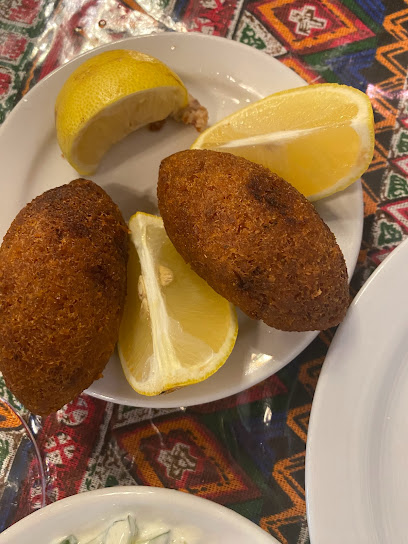
Markets, malls and hidden boutiques
Alrov Mamilla Avenue
Discover Alrov Mamilla Avenue, Jerusalem's premier shopping destination with an array of boutiques, dining, and cultural experiences.
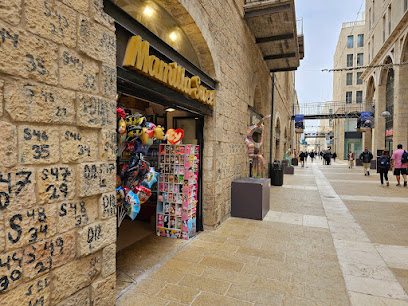
Zak’s Jerusalem Gifts
Discover the charm of Jerusalem at Zak’s Jerusalem Gifts, where antiques and souvenirs offer a glimpse into the city's rich cultural heritage.
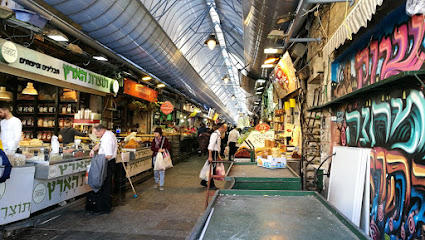
Old City Bazaar
Discover unique souvenirs and local treasures at the Old City Bazaar, a vibrant gift shop near Jerusalem's historic Church of the Holy Sepulchre.
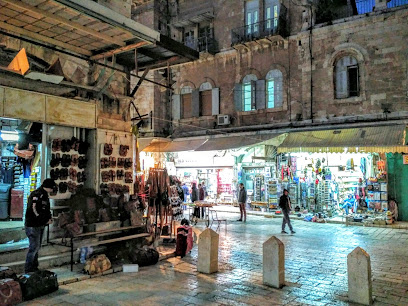
Jerusalem New Souvenir Store
Explore the New Souvenir Store in Jerusalem for unique keepsakes and handcrafted treasures reflecting the city's rich culture and history.
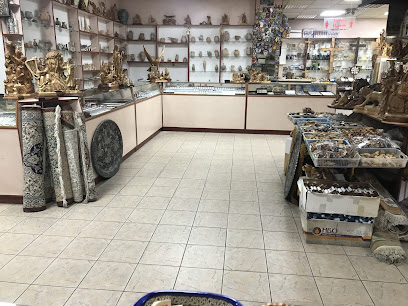
Old City Gift Shop - Souvenirs, Jewellery & Judaica in Jerusalem
Explore the Old City Gift Shop for unique souvenirs, exquisite jewelry, and authentic Judaica in the heart of Jerusalem.
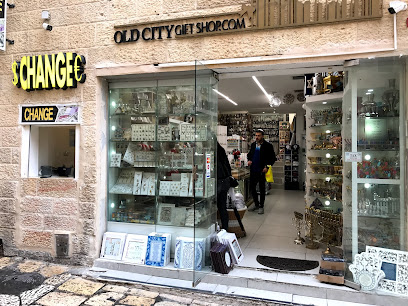
Barbara Shaw Gifts Queen shlomtzion city center Jerusaelm
Explore the vibrant selection of unique souvenirs and religious gifts at Barbara Shaw Gifts, a must-visit shop in Jerusalem's city center.
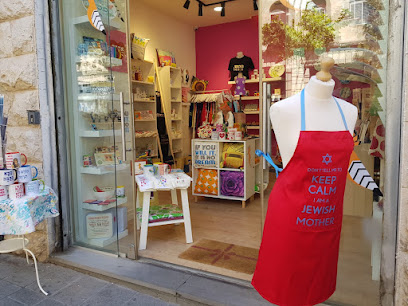
St.joseph shop
Discover unique souvenirs and local treasures at St. Joseph Shop in Jerusalem, where every item tells a story of the city's rich heritage.
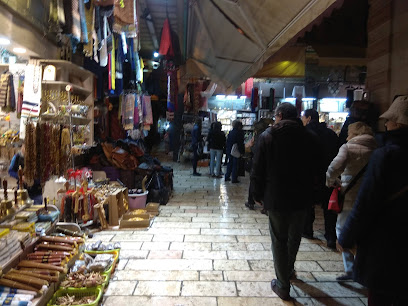
Jerusalem Stone Center
Explore the Jerusalem Stone Center for unique handmade gifts and souvenirs that reflect the rich heritage of the Holy City.
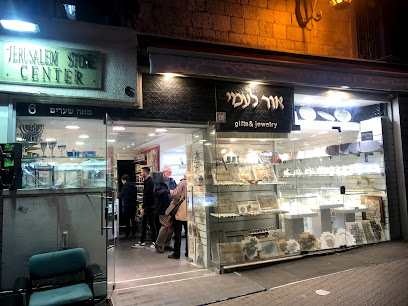
HolyLand Shop
Discover unique souvenirs and authentic gifts at HolyLand Shop, the perfect place to remember your Jerusalem adventure.
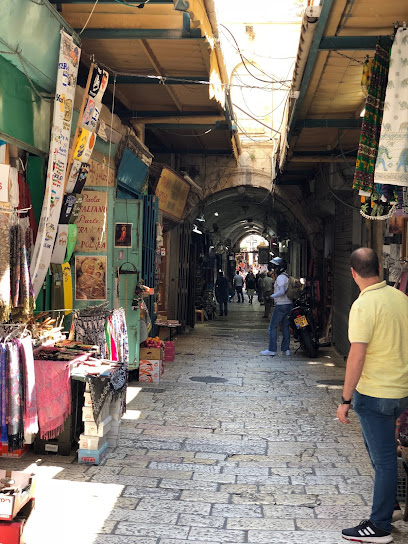
Jerusalem Shopping
Explore a charming boutique gift shop in Jerusalem, where unique handcrafted treasures and local art await every tourist.
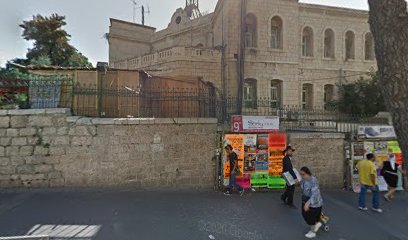
Essential bars & hidden hideouts
Gatsby Cocktail Room
Experience the sophisticated nightlife of Jerusalem at Gatsby Cocktail Room, where masterful mixology meets elegant ambiance.
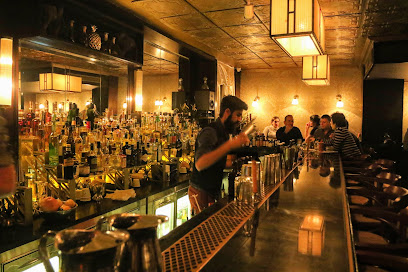
Dublin Irish Pub
Discover Dublin Irish Pub in Jerusalem, a cozy spot for authentic Irish cuisine, delightful drinks, and a lively atmosphere to unwind and socialize.
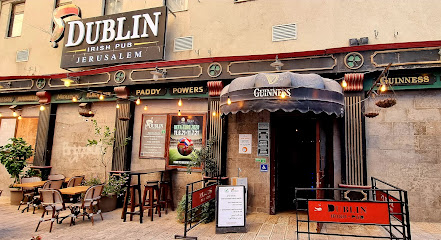
Hataklit Bar
Discover the vibrant nightlife of Jerusalem at Hataklit Bar, a gastropub known for its unique decor, delicious food, and extensive drink selection.
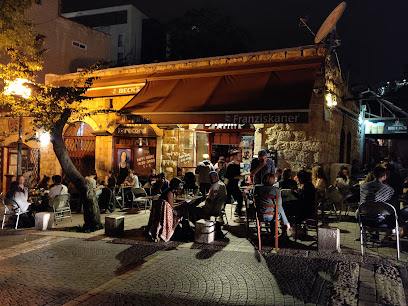
The Sira Pub
Experience the vibrant nightlife at The Sira Pub in Jerusalem, where friendly faces and great drinks await you in a lively atmosphere.
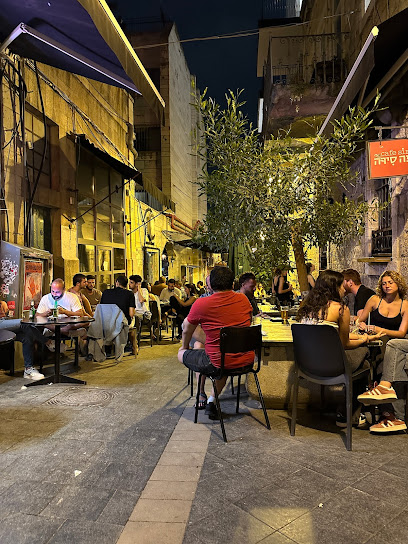
Generation Pub
Discover the lively ambiance of Generation Pub, Jerusalem's favorite spot for drinks, music, and unforgettable nightlife experiences.
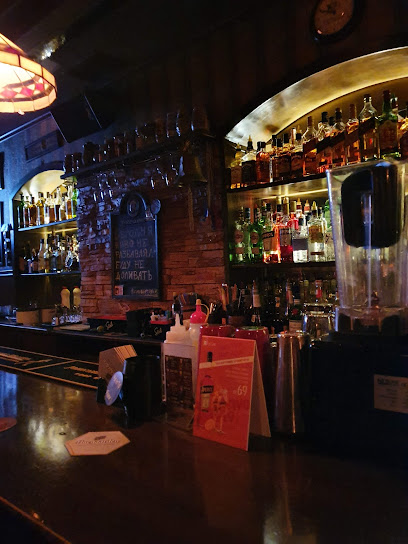
Wine Bar
Experience the essence of Jerusalem at Wine Bar, a cozy spot where exquisite wines and delectable dishes create unforgettable moments.
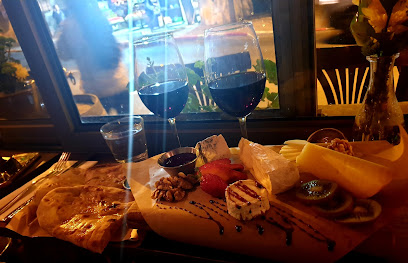
The Red Lady
Discover The Red Lady, a stylish cocktail bar in Jerusalem offering a vibrant nightlife and expertly crafted drinks in an inviting atmosphere.
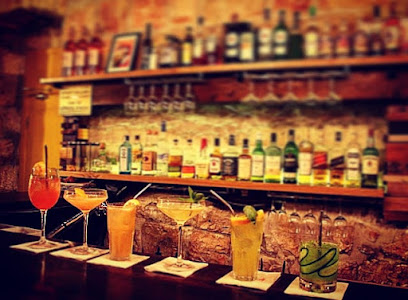
Bar yanai
Experience the vibrant nightlife of Jerusalem at Bar Yanai, where exquisite cocktails and a lively atmosphere await you.
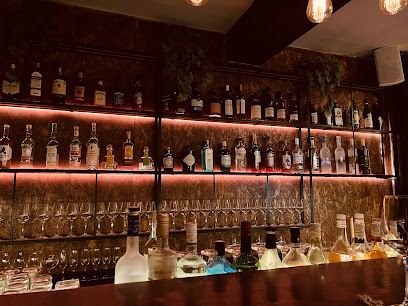
Cellar Bar Jerusalem
Discover the vibrant nightlife at Cellar Bar in Jerusalem, where exquisite drinks and a cozy atmosphere await every visitor.
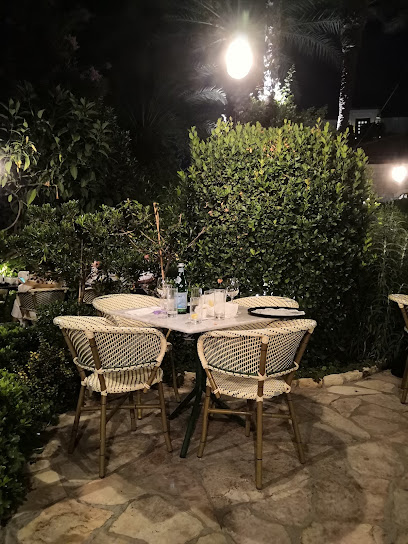
The Barrel Public House
Experience the vibrant nightlife of Jerusalem at The Barrel Public House, where craft beers and local culture converge in a lively bar setting.
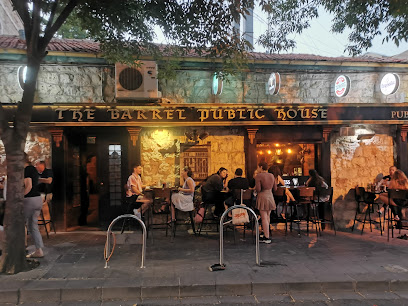
Local Phrases
-
- Helloשָׁלוֹם
[shalom] - Goodbyeלְהִתְרָאוֹת
[lehitraot] - Yesכֵּן
[ken] - Noלֹא
[lo] - Please/You're welcomeבבקשה
[bevakasha] - Thank youתודה
[toda] - Excuse me/Sorryסליחה
[slicha] - How are you?איך אתה?
[ech ata?] - Fine. And you?טוב. ואתה?
[tov. ve'ata?] - Do you speak English?אתה מדבר אנגלית?
[ata medaber anglit?] - I don't understandאני לא מבין
[ani lo mevin]
- Helloשָׁלוֹם
-
- I'd like to see the menu, pleaseאני רוצה לראות את התפריט, בבקשה
[ani rotse lir'ot et hataprit, bevakasha] - I don't eat meatאני לא אוכל בשר
[ani lo ochel basar] - Cheers!לְחַיִים!
[lechayim!] - I would like to pay, pleaseאני רוצה לשלם, בבקשה
[ani rotse lishlem, bevakasha]
- I'd like to see the menu, pleaseאני רוצה לראות את התפריט, בבקשה
-
- Help!עזרה!
[ezra!] - Go away!לך הלאה!
[lech hala'a!] - Call the Police!קרא למשטרה!
[kra lemishtara!] - Call a doctor!קרא לרופא!
[kra larofe!] - I'm lostאני אבוד
[ani avud] - I'm illאני חולה
[ani holeh]
- Help!עזרה!
-
- I'd like to buy...אני רוצה לקנות...
[ani rotse liknot...] - I'm just lookingאני רק מסתכל
[ani rak mistakel] - How much is it?כמה זה עולה?
[kama ze ole?] - That's too expensiveזה יקר מדי
[ze yakar midei] - Can you lower the price?אתה יכול להוריד את המחיר?
[ata yachol lehorid et hamechir?]
- I'd like to buy...אני רוצה לקנות...
-
- What time is it?כמה השעה?
[kama hasha'a?] - It's one o'clockהשעה אחת
[hasha'a achat] - Half past (10)חצי (עשר)
[chatzi (eser)] - Morningבוקר
[boker] - Afternoonצהריים
[tzohorayim] - Eveningערב
[erev] - Yesterdayאתמול
[temol] - Todayהיום
[hayom] - Tomorrowמחר
[machar] - 1אחת
[achat] - 2שתיים
[shtayim] - 3שלוש
[shlosh] - 4ארבע
[arba] - 5חמש
[chamesh] - 6שש
[shesh] - 7שבע
[sheva] - 8שמונה
[shmone] - 9תשע
[tesha] - 10עשר
[eser]
- What time is it?כמה השעה?
-
- Where's a/the...?איפה נמצא/יש...
[eifo nimtza/yesh...] - What's the address?מה הכתובת?
[ma hakatavat?] - Can you show me (on the map)?אתה יכול להראות לי (על המפה)?
[ata yachol leharot li (al hamapa)?] - When's the next (bus)?מתי האוטובוס הבא?
[matay haotobus haba?] - A ticket (to ....)כרטיס (אל...)
[kartis (el...)]
- Where's a/the...?איפה נמצא/יש...
History of City Center
-
The City Center of Jerusalem, known as the 'Lev Ha'ir', is characterized by its blend of ancient and modern architecture. The area was originally developed in the late 19th century as the city expanded outside its historic walls. The construction of the first modern neighborhoods, including the Russian Compound and the neighborhood of Me'a She'arim, set the stage for a vibrant urban environment.
-
During the British Mandate from 1917 to 1948, Jerusalem experienced significant urban development. The City Center became a hub for administrative and cultural institutions. Key structures, such as the King David Hotel and the Hebrew University, were established, reflecting the architectural trends of the time and the growing Jewish presence in the city.
-
The City Center witnessed intense conflict during the 1948 Arab-Israeli War. Following the war, Jerusalem was divided, with the western part, including the City Center, coming under Israeli control. This division profoundly affected the city's demographics and cultural landscape, leading to significant changes in the neighborhood's character.
-
In the early 21st century, the City Center saw a revival as a cultural and commercial hub. The establishment of pedestrian promenades, art galleries, and cultural centers, such as the Jerusalem Theater, revitalized the area. This renaissance reflects Jerusalem's dynamic cultural scene, attracting both locals and tourists to its vibrant atmosphere.
-
Today, the City Center faces challenges such as urban congestion and socio-political tensions. However, ongoing development projects aim to enhance public spaces and improve infrastructure. The area remains a focal point for social interaction and cultural exchange, embodying the complexities of life in Jerusalem.
City Center Essentials
-
The City Center is easily accessible from other neighborhoods in Jerusalem. From the Old City, you can walk to the City Center in about 15-20 minutes. If you are coming from the Western Wall, you can take a bus or a taxi. The central bus station is located at Jaffa Road, which connects various neighborhoods. Light rail services also run through the City Center, connecting it to areas such as Mount Herzl and the Central Bus Station.
-
City Center is well-served by public transportation, including buses and the light rail. The light rail runs frequently and is an excellent way to navigate the area. Bicycles can be rented from various bike-sharing programs available in the city. Walking is also a great option, as many attractions are within a short distance from each other. Taxis and ride-sharing services like Gett are readily available for more convenience.
-
The City Center is generally safe for tourists, but it's wise to remain cautious, especially in crowded areas. Avoid the area around Mahane Yehuda Market at night, as it can become less secure. While crimes targeting tourists are rare, petty theft can occur, so keep your belongings secure and be aware of your surroundings.
-
In an emergency, dial 100 for police, 101 for medical emergencies, and 102 for fire services. Familiarize yourself with the nearest hospital; the Hadassah Medical Center is a prominent facility. Always carry a copy of your passport and emergency contact information. It is advisable to have travel insurance that covers emergencies.
-
Fashion: Do dress modestly, particularly when visiting religious sites. Women should cover their shoulders and knees, while men should avoid wearing shorts. Religion: Do respect religious customs; refrain from taking photos in sensitive areas. Public Transport: Do offer your seat to the elderly and pregnant women. Don't play loud music or engage in disruptive behavior. Greetings: Do greet with a friendly 'Shalom' and a smile. Eating & Drinking: Do try local food and drink—Jerusalem is famous for its hummus and falafel. Don't eat in places where it is inappropriate, such as religious sites.
-
To experience City Center like a local, visit Mahane Yehuda Market early in the morning for the freshest produce and a vibrant atmosphere. Explore the small cafes and bakeries in the area for authentic Jerusalem cuisine. Don’t miss the street art in the Nachlaot neighborhood nearby, which reflects the city's diverse culture. Engaging with local vendors and shopkeepers can provide insights into the best places to dine and explore.
Nearby Cities to City Center
-
Things To Do in Bethlehem
-
Things To Do in Modi'in
-
Things To Do in Dead Sea
-
Things To Do in Ein Gedi
-
Things To Do in Holon
-
Things To Do in Ramat Gan
-
Things To Do in Hod Hasharon
-
Things To Do in Jaffa
-
Things To Do in Kfar Saba
-
Things To Do in Ashdod
-
Things To Do in Masada
-
Things To Do in Tel Aviv
-
Things To Do in Madaba
-
Things To Do in Herzliya
-
Things To Do in Ra'anana













